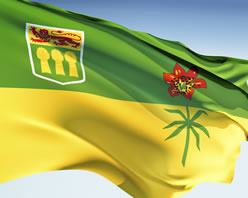Slip Vs Relapse
Families of individuals with addictions are not just an important part of treatment, but an important part of recovery (i.e. life after treatment). Relapse can be one of the biggest worries once loved ones return home from treatment, yet many can’t identify what true relapse looks like. TO complicate matters, there is no universally agreed upon definition for “relapse”. What is Relapse? While there are many definitions available, a relapse can be defined as “a return to previous levels of substance use or behaviour(s) after a period of improvement”. Generally, total relapse reflects a higher severity in the return to addictive behaviours. Many factors can influence relapse. To start, it’s not a sign or lacking willpower and control. Certain characteristics affect treatment outcomes and recovery. One study found those with higher self-efficacy, less avoidant coping styles, and a readiness to change showed better outcomes. In contrast, untreated concurrent mental health problems, multiple substance dependencies, and high impulsivity were linked to increased vulnerability for relapse. According to the same study, people experiencing mental health issues like distress, depression, and anxiety are also at higher risk for relapse. Negative emotions account for 30% of relapses and increase the chances of a ‘slip’ turning into relapse. What is a Slip? A slip is defined as “a break in abstinence” or “the act or instance of back-sliding”. A popular belief is that slips are not as detrimental as relapse. The belief is that it is different from relapse, because a slip is not a complete return to addictive behaviours. However, there are a number of people who don’t believe in slips; abstinence is “all or nothing” to them. Any consumption of substances is considered relapse. This belief doesn’t work for everyone. Behaviour & Process Addictions Adding to the confusion surrounding slips and relapse, are those with process addictions such as food, sex, video games, and internet use. For this group, it is not necessarily realistic to abstain permanently. For example, people with food or sex addiction need to develop moderate, healthy sexual or eating behaviours. Harm Reduction Definitions of relapse and slips also become confusing when the definition of recovery shifts from the traditional view of abstinence to moderate removal. For example, individuals with opioid addiction may need to taper in order to achieve long-term recovery. They may even need to use other painkillers to ease an injury or recover from surgery in the future. Recovery is not a State, it’s a Process Recovery is a learning process and a slip or relapse may be a necessary part of that individual’s learning. Individuals who slip or relapse learn more about themselves and better ways to prevent slips in the future. Relapse can also be a sign of boredom and a lack of meaning and purpose. Individuals who slip or relapse have an opportunity to look at their life and find ways to make it more meaningful. This insight can greatly improve their recovery and prevent relapse in the future. Your Role As friends and families, it’s important not to react drastically to a loved one’s slip or relapse. Our negative reactions can translate into failure in their eyes. This sense of failure can cause your loved one to believe they’re hopeless and return to old patterns. Individuals with more supportive relationships with families and friends show better treatment and recovery outcomes. The post Slip Vs Relapse appeared first on Canada Drug...
Peer Support Meetings in Small Saskatchewan Communities
Do you live in a small, rural community? Have you searched for support before and found little to nothing in your town? This blog may be helpful for you. Our caller, Josh*, in this blog was looking for NA meetings in Coleville, SK. It would take him several hours driving to attend the closest meetings. We looked for meetings close to Josh, hoping we missed something in our directory, but there was in Josh’s area. We, alternatively, gave Josh a list of online meetings available for anyone to access. Some of them are even phone meetings. Here is a link to our website with all the meetings we are aware of in Saskatchewan: http://www.canadadrugrehab.ca/Saskatchewan-NA-AA-Narcotic-Anonymous-Alcoholic-Anonymous-Meeting.html#AA Here are several links to many online meeting groups. There are lots of people in small communities who have found support through meeting with others online. ONLINE MEETINGS AAOnline.net Lamplighters Group of Alcoholics Anonymous Online Intergroup of Alcoholics Anonymous Cocaine Anonymous Online Service Area LifeRing Narcotics Anonymous Chat and Online Meetings NA Chatroom Online...
Welcome!
Hello and welcome to the Saskatoon detox blog. This blog and many others are operated by www.canadadrugrehab.ca; an organization of specialists who talk to people every day by phone and email to help them find the addiction treatment and support they need for themselves or loved ones. That being said, we know there are many more people out there that we can help. For those who we are unable to communicate with directly by phone or email, we will be posting regular blogs detailing situations of callers across Canada and the resources we provided them so they have the resources to deal with their unique situation (names and personal information will be changed or removed to protect privacy). Each person’s situation is different and the links and information we give is tailored to that individual and their specific needs. We hope you will be able to identify with some of the people in these excerpts and find the provided information helpful in your own search for treatment options. For more personalized help in finding addiction treatment, please contact us at 1.877.746.1963 or info@canadadrugrehab.ca. There is no cost for connecting with us. CDR is a public service with a mission to help individuals and families struggling with addiction in Canada find treatment and other resources that will help them develop improved, more fulfilling lives....



